Editor’s note: Jackson Baker’s 2004 story of George W. Bush’s failure to report to National Guard duty is the basis for ≠events portrayed in the new movie Truth. This is an edited version of Baker’s original story. It was recently cited, as noted below, in a Buzzfeed.com story about the movie.
“In February 2004, the alternative newsweekly The Memphis Flyer published extensive interviews with guardsmen who served with Bush and said he went AWOL. Mainstream media, for reasons still inadequately explained today, sat on that information for 7 months.” — RawStory.com, October 29.
Two members of the Air National Guard unit that President George W. Bush allegedly served with as a young Guard flyer in 1972 had been told to expect him late in that year and were on the lookout for him. He never showed. Of that, both Bob Mintz and Paul Bishop are certain.
The question of Bush’s presence in 1972 at Dannelly Air National Guard base in Montgomery, Alabama — or the lack of it — has become an issue in the 2004 presidential campaign. And that issue, which picked up steam last week, continues to rage.
Recalls Memphian Mintz, now 62: “I remember that I heard someone was coming to drill with us from Texas. And it was implied that it was somebody with political influence. I was a young bachelor then. I was looking for somebody to prowl around with.” But, says Mintz, that “somebody” — better known to the world now as the president of the United States — never showed up at Dannelly in 1972. Nor in 1973, nor at any time that Mintz, a FedEx pilot now and an Eastern Airlines pilot then, when he was a reserve first lieutenant at Dannelly, can remember.
“And I was looking for him,” repeated Mintz, who said that he assumed that Bush “changed his mind and went somewhere else” to do his substitute drill. It was not “somewhere else,” however, but the 187th Air National Guard Tactical squadron at Dannelly to which the young Texas flyer had requested transfer from his regular Texas unit — the reason being Bush’s wish to work in Alabama on the ultimately unsuccessful U.S. Senate campaign of family friend Winton “Red” Blount.
It is the 187th, Mintz’s unit, which was cited, during the 2000 presidential campaign, as the place where Bush completed his military obligation. And it is the 187th that the White House continues to contend that Bush belonged to as recently as last week, when presidential spokesman Scott McClellan released payroll records and, later, evidence suggesting that Bush’s dental records might be on file at Dannelly.
[But] the mystery of the young lieutenant’s whereabouts in late 1972 remains.
“There’s no way I wouldn’t have noticed a strange rooster in the henhouse, especially since we were looking for him,” insists Mintz, who has begun poring over such documents relating to the matter as are now making their way around the Internet. One of these is a piece of correspondence addressed to the 187th’s commanding officer, then Lt. Col. William Turnipseed, concerning Bush’s redeployment.
Mintz remembers a good deal of base scuttlebutt at the time about the letter, which clearly identifies Bush as the transferring party. Formerly a registered Republican, Mintz confesses to “a negative reaction” to what he sees as out-and-out dissembling on President Bush’s part. “You don’t do that as an officer, you don’t do that as a pilot, you don’t do it as an important person, and you don’t do it as a citizen. This guy’s got a lot of nerve.”
The actual flying squadron of the 187th numbered only “25 to 30 pilots,” Mintz said. “There’s no doubt. I would have heard of him, seen him, whatever. … And if he did any flying at all, on whatever kind of craft, that would have involved a great number of supportive personnel. It takes a lot of people to get a plane into the air. But nobody I can think of remembers him. I talked to one of my buddies the other day and asked if he could remember Bush at drill at any time, and he said, ‘Naw, ol’ George wasn’t there. And he wasn’t at the Pit, either.'”
The “Pit” was The Snake Pit, a nearby bistro where the squadron’s pilots would gather for frequent after-hours revelry. And the buddy was Bishop, then a lieutenant at Dannelly and now a pilot for Kalitta, a charter airline that in recent months has been flying war materiel into the Iraq Theater of Operations.
“I never saw hide nor hair of Mr. Bush,” confirms Bishop, who voted for the current president in 2000. “In fact,” he quips, mindful of the current political frame of reference, “I saw more of Al Sharpton at the base than I did of George W. Bush.
In Air National Guard circles, Bishop, who now lives in Goldsboro, N.C., is something of a legendary figure. Known to his mates as “Papa Whiskey” (for “P.W.”) Bishop, he is a veteran of Gulf War I, a conflict in which he was the ranking reservist. During the current conflict, on behalf of Kalitta, Bishop has flown frequent supply missions into military facilities at Kuwait.
“I think a commander-in-chief who sends his men off to war ought to be a veteran who has seen the sting of battle. In Iraq: we have a bunch of great soldiers, but they are not policemen. I don’t think he [the president] was well-advised; right now it’s costing us an American life a day. I’m not a peacenik, but what really bothers me is that of the 500 or so that we’ve lost almost 80 of them were reservists. We’ve got an over-extended Guard and reserve.”
Part of the problem, Bishop thinks, is a disconnect resulting from the president’s own inexperience with combat operations.
“It bothered me that he wouldn’t ‘fess up and say, Okay, guys, I cut out when the rest of you did your time. He shouldn’t have tried to dance around the subject. I take great exception to that. I spent 39 years defending my country.”
Like his old comrade Mintz, Bishop, now 65, was a pilot for Eastern Airlines during their reserve service in 1972 at Dannelly. Mintz then lived in Montgomery; Bishop commuted from Atlanta. Mintz and Bishop retired from the Guard with the ranks of lieutenant colonel and colonel, respectively.
“Unless he [Bush] was an introvert back then, which I don’t think he was, he’d have spent some time out in the mainstream, in the dining hall or wherever. He’d have spent some time with us. Unless he was trying to avoid publicity. But he wasn’t well known at all then. It all seems a bit unusual.”
As Bishop noted, “Fighter pilots, and that’s what we were, have situational awareness. They know everything about their environment — whether it’s an enemy plane creeping up or a stranger in their hangar.” [If Bush had been there], said Bishop, “… there would be documentation of the fact in point summaries and pay documents.”
And that’s another mystery.
Yet another veteran of the 187th is Wayne Rambo of Montgomery, who as a lieutenant served as the unit’s chief administrative until April of 1972. That was a few months prior to Bush’s alleged service, which Rambo, who continued to drill with the 187th, also cannot remember.
Rambo was, however, able to shed some light on the Guard practice, then and now, of assigning annual service “points” to members, based on their record of attendance and participation. The bare minimum number is 50, and reservists meeting standard are said to have had “a good year,” Rambo said.
“The 50-point minimum has always been taken very seriously, especially for pilots,” says Rambo. “The reason is that it takes a lot of taxpayer money to train a pilot, and you don’t want to see it wasted.”
For whatever reason, the elusive Lt. George W. Bush was awarded 41 actual points for his service in both Texas and Alabama during 1972 — though he apparently was given 15 “gratuitous” points, presumably by his original Texas command, enough to bring him up from substandard. That would have been a decided violation of the norm, according to Rambo.
Bishop raises yet another issue about Bush’s Guard tenure: the cancellation after 1972 of the final year of his six-year obligation — ostensibly to pursue a post-graduate business degree at Yale.
That didn’t sit well with the veteran pilot. “When you accept a flying slot with the Air National Guard, you’re obligated for six years,” Bishop said. “Maybe they do things differently in Texas. I don’t want to malign the commander-in-chief, but this is an issue of duty, honor country. You must have integrity.”
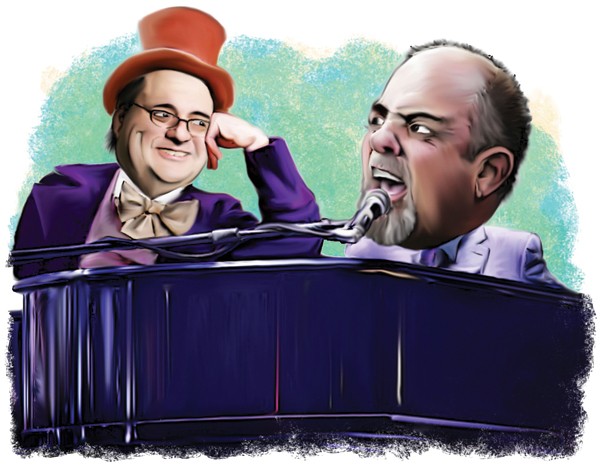 Greg Cravens
Greg Cravens 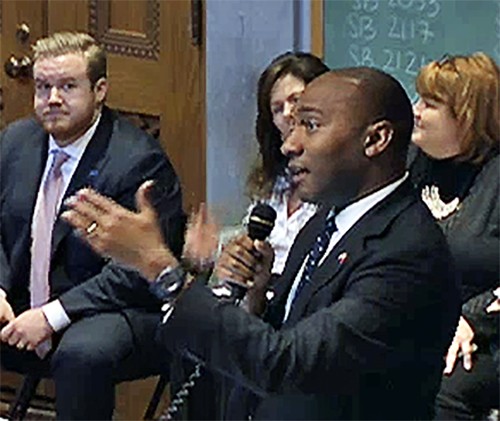
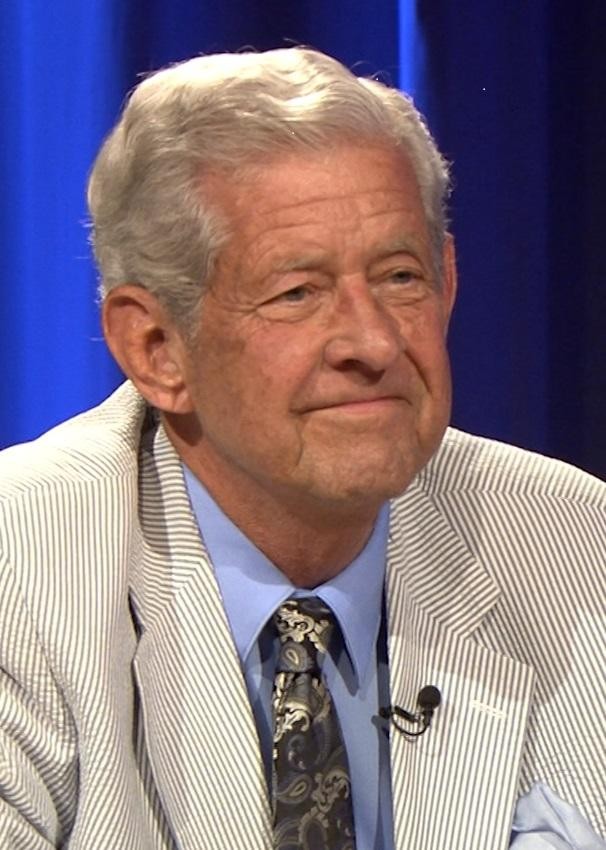
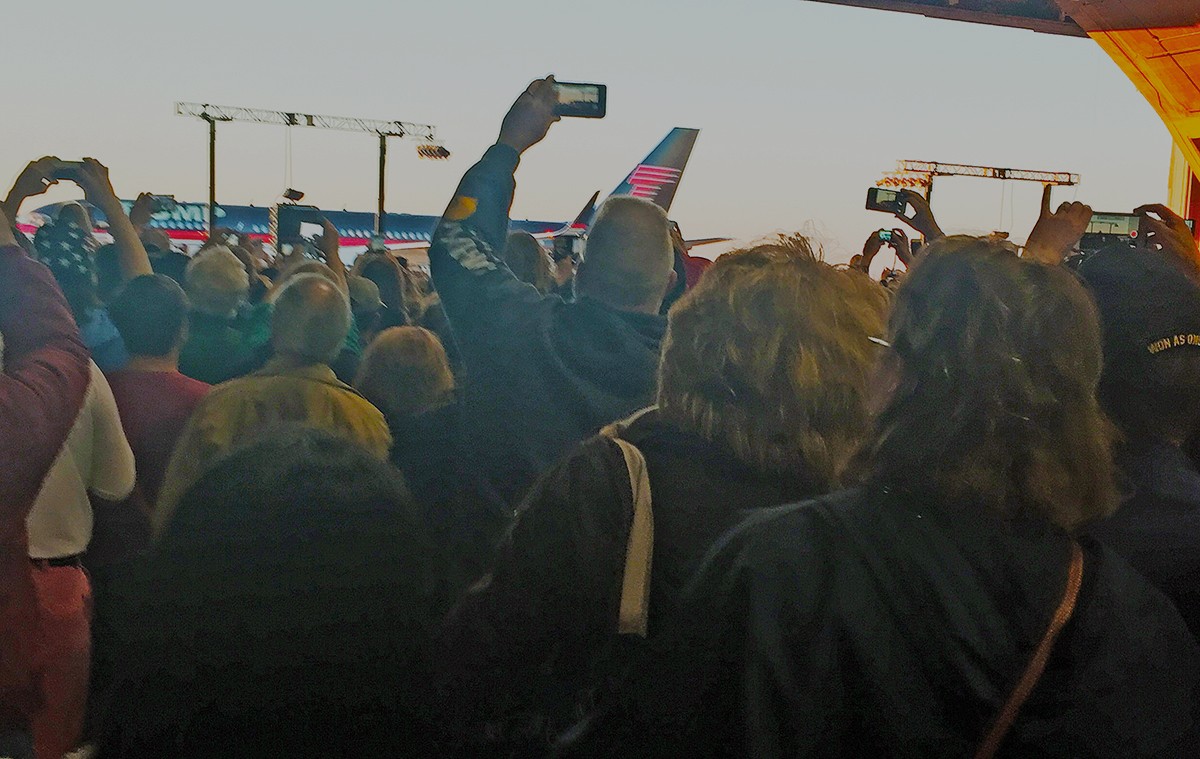



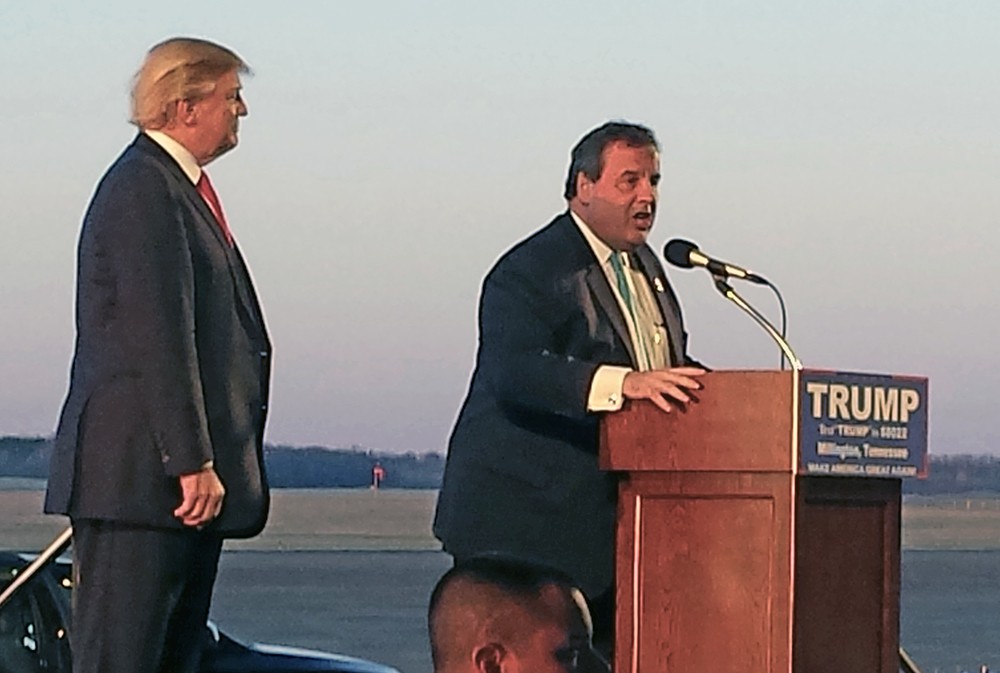
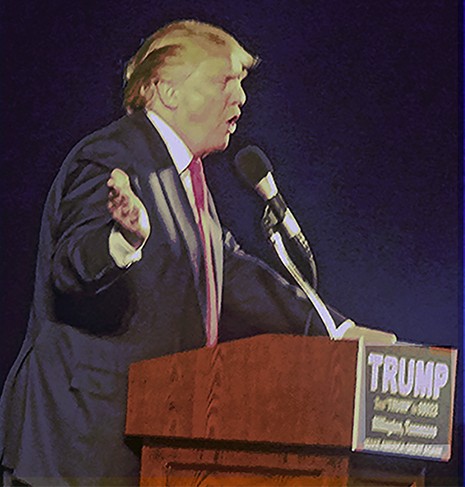

 Antonin Scalia, 1936-2016
Antonin Scalia, 1936-2016 
